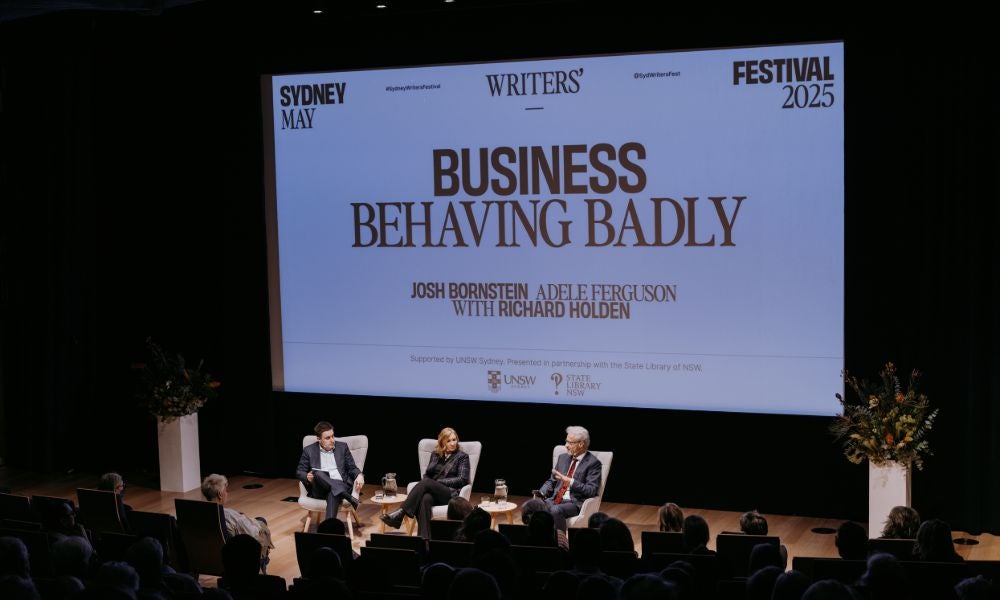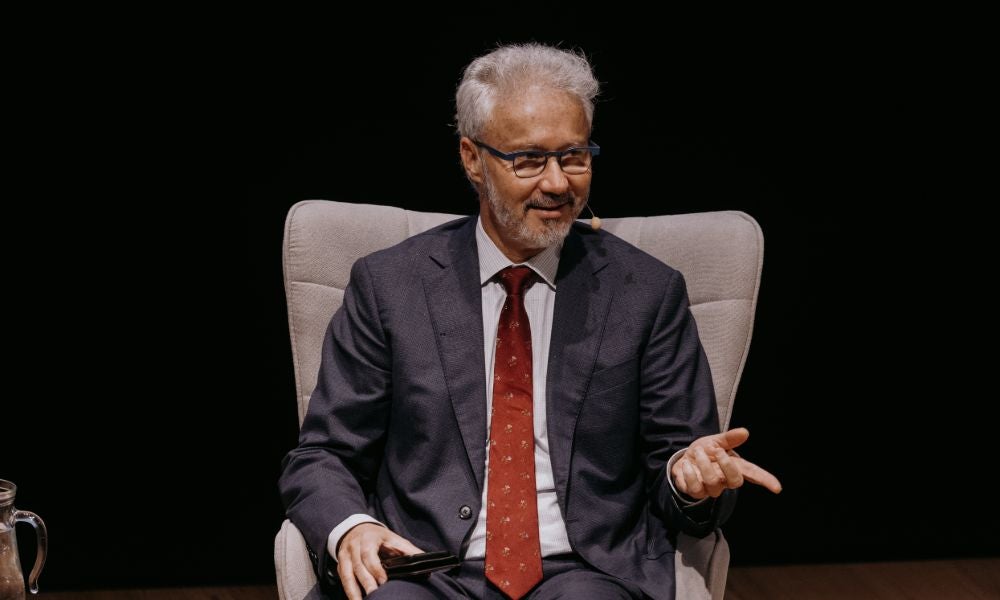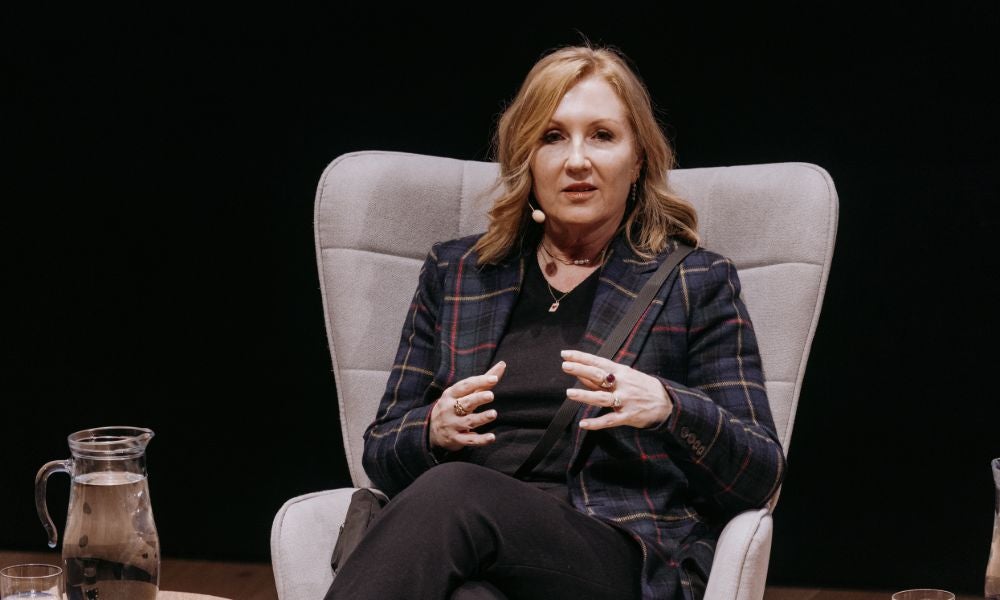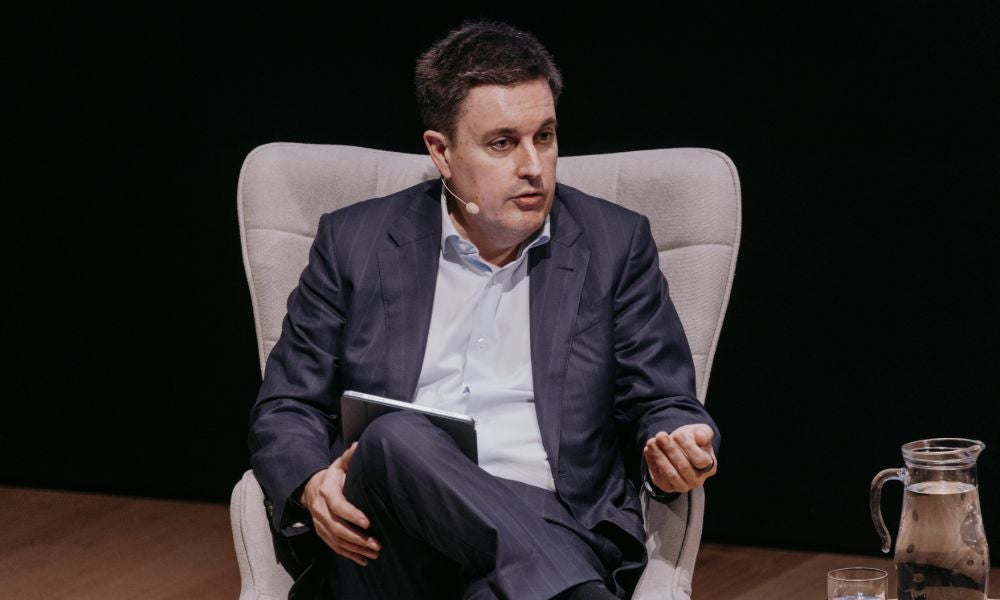Corporate power run amok: exposing Australia’s accountability crisis
Experts have warned that unchecked corporate power is damaging Australia's economy, harming workers and consumers while eroding democratic accountability
Corporate greed in Australia has a deep-rooted history, marked by high-profile scandals – from banking misconduct and wage theft to regulatory failures. This persistent problem reflects ongoing tensions between profit motives and public interest.
Speaking at the Sydney Writers’ Festival, investigative journalist Adele Ferguson and employment lawyer Josh Bornstein joined UNSW Sydney Scientia Professor Richard Holden for a discussion on corporate abuse, regulatory failure, and the urgent need for reform.

Erosion of worker rights and public trust
Speaking about the terms many corporations now out in their contracts, Mr Bornstein explained that it was ridiculous that companies purport to have values no person could possibly abide by 24/7. “Millions of people in the labour market are facing censorship that no government… no legitimate liberal democracy would ever dream of trying to impose on its citizens,” warned Mr Bornstein, who is currently suing Qantas in federal court for $100 million – a record penalty against the airline over the unlawful sacking of 1820 baggage handlers during the COVID-19 pandemic.
“And that's because over the last 30 or 40 years, the labour market has been de-unionised radically in this country, far more radically than virtually any other country in the OECD, and once you de-unionise the labour market and you silence or diminish the voice of the collective, an individual has no chance.”
Ms Ferguson echoed his concern: “We’ve had thousands of parents, workers, whistleblowers just telling us that [the childcare] industry is really rotten, and that we need to do something. What are the regulators doing? You find (again) they’re missing in action.”

To illustrate just how much corporations can get away with in their contracts, Mr Bornstein recounted the story of Hank Dovendans, a 24-year-old union delegate fired by BHP during a protected strike for holding a sign critical of the company. “These are values that no human being can always comply with in their life, but the policies and the contract will say you are required to comply with them, 24/7, and so he found himself subject to a disciplinary investigation because he hadn't shown respect... and they decided to sack him.”
Mr Dovendans took the case to the High Court, but in the end the ruling favoured the company. “We believe…that he was sacked for not showing respect.”
Ms Ferguson also laid bare the scale of Australia’s corporate misconduct, starting with her exposé of Commonwealth Bank. “It wasn’t one bad apple as the bank was trying to spin, it was the whole barrel [that] was basically rotten,” she said, referencing the bank’s culture of fraud, forgery, and cover-ups that eventually triggered the Royal Commission into Misconduct in the Banking, Superannuation and Financial Services Industry.

“It turned out that it was the whole incentive structure. So you had the bank tellers who people had trusted were actually getting bonuses, and had targets to get people to actually go and see the financial planner. They also were getting commissions, and it was going right up to the top – it wasn't just financial planning, it was life insurance, it was bank loans, it was right throughout the entire banking system.”
Regulation, whistleblower reform, and union power
So why haven’t regulators been taking more action? Prof. Holden cited the concept of regulatory capture: “In the early 1960s, George Stigler coined the notion of regulatory capture. Even if regulators are trying to do the right thing, it's just very difficult – regulation is only going to be able to do so much.”
Ms Ferguson agreed: “The regulators don’t want to go in too hard. Affinity [a childcare operator] got 1700 breaches in New South Wales alone and less than $2000 in fines.”
Mr Bornstein added: “What regulators do, who they prosecute, how hard they go, is a product of politics. We as a society have decided not to regulate corporations effectively.”

Following the banking royal commission, Ms Ferguson championed whistleblower protection reform, noting severe consequences faced by Commonwealth Bank whistleblowers. “Jeff Morris ended up with PTSD; his wife left him. Benjamin Koh was sacked before he even spoke to a journalist,” she said. “In the US, there’s even a whistleblower day. Here? We prosecute them.”
Mr Bornstein said Australia needs stronger unions to help improve wages and working conditions. But a big challenge is that fewer people are joining unions, since even non-members still get the benefits without having to contribute. “Union density is now in such a trough that it’s very close to American levels. If a union negotiates for better conditions, those improvements are applied to people who pay nothing. That’s the free rider problem,” he said.
Cultural capture and political lobbying
Political influence compounds the problem. Ms Ferguson explained: “Parliament House is teeming with lobbyists and spin doctors and crisis management, people who are in the ears of government.. threatening that, you know, jobs will be lost. They'll move their headquarters overseas.”
Subscribe to BusinessThink for the latest research, analysis and insights from UNSW Business School
Agreeing with her, Mr Bornstein called for campaign finance reform: “Political donations... privilege wealthy people and allow them to have an extraordinary clout.”
Ms Ferguson concluded by calling for a full review of Australia’s National Quality System for childcare: “The Prime Minister says 90% of centres are good – but one in 10 have never been rated… and many are failing. We actually don’t know how good these centres are.” She also called for a national childcare commission and an independent inquiry to elevate parent and worker voices.
The panellists left no doubt about their key message: corporate power has metastasised. As Mr Bornstein put it, “These terms in contracts… are an abuse of power. If we don’t confront that, we’ll keep having the same problem.”
